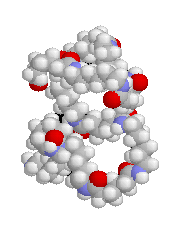Discovering the Varied Applications and Benefits of Polymers in Different Industries
Polymers, with their diverse range of homes and functionalities, have actually ended up being essential in numerous markets, each gaining special benefits from their application. From boosting safety and efficiency in the automobile sector to revolutionizing clinical gadgets in the healthcare market, polymers play a critical role.
Automotive Sector Applications
Polymers play an essential function in enhancing the performance and sturdiness of numerous elements within the auto market. These flexible products are extensively made use of in the manufacturing of various components, varying from interior elements to under-the-hood applications. One prominent use polymers in the auto market remains in the production of light-weight components. By replacing typical metal parts with polymer-based options, lorries can achieve improved fuel performance without endangering on strength or safety and security.

Healthcare Market Advantages
In different medical care applications, the advantages of utilizing polymers are widely acknowledged for their diverse series of helpful properties. Polymers play a critical role in the healthcare industry because of their flexibility, biocompatibility, and cost-effectiveness. Among the key advantages of polymers in medical care is their capability to be tailored to particular requirements, such as versatility, sturdiness, and biodegradability, making them suitable for a wide variety of medical applications.
Polymer-based products are thoroughly utilized in medical devices, such as catheters, implants, prosthetics, and medicine distribution systems, because of their biocompatibility and ability to simulate natural tissues. These materials can decrease the risk of allergies or beings rejected, improving client safety and outcomes. Additionally, polymers are light-weight, making them appropriate for wearable medical tools and making certain individual comfort.
Moreover, polymers enable the advancement of innovative treatment techniques, such as hydrogels for tissue design and nanocomposites for targeted drug distribution. Their ease of processing and sterilization makes them crucial for preserving high criteria of hygiene in health care settings. Overall, the diverse advantages of polymers add significantly to developments in clinical technology and client care.
Ecological Benefits of Polymers

In addition, polymers can contribute to energy cost savings due to their lightweight nature. In industries such as transportation, lightweight polymer materials can help in reducing fuel usage and greenhouse gas discharges. In addition, polymers can make it possible for the growth of energy-efficient items such as insulation products that boost power preservation in structures.
In addition, polymers play an essential role in reducing water air pollution. As an example, making use of polymer-based filtering systems can successfully get rid of contaminants and pollutants from wastewater, securing water resources and ecosystems. On the whole, the ecological benefits of polymers make them valuable properties in advertising sustainability and environment-friendly methods across various sectors.
Polymers in Electronic Devices and Innovation
Considering the raising need for cutting-edge and lasting services in modern-day markets, the integration of innovative polymer innovations in the world of electronics and modern technology has become a pivotal strategy for driving performance and efficiency. Polymers have transformed the electronic devices sector by allowing the production of lighter, more versatile, and durable digital tools. From smartphones to clinical tools, polymers play a vital duty in enhancing item style and functionality.
One substantial advantage of polymers in electronics is their shielding buildings, which assist safeguard fragile digital elements from ecological aspects and electric interference. Additionally, polymers are essential in the development of versatile display screens, wearable technology, and printed electronic devices, offering countless opportunities for developing wise and interconnected devices.
Furthermore, making use of polymers in digital packaging has caused innovations in miniaturization and thermal administration, improving the general efficiency and integrity of digital systems. As modern technology proceeds to progress, the convenience and adaptability of polymers will definitely drive better technology in the electronic devices market, shaping the future of technology.
Function of Polymers in Building and Framework
The integration of advanced polymer products in construction and framework jobs has actually transformed the way frameworks are designed and integrated in modern-day times. Polymers offer countless benefits in the building and construction discover this info here industry due to their adaptability, sturdiness, and cost-effectiveness. One essential function of polymers in building is their usage in finishings and sealants, supplying protection versus ecological aspects such as dampness, UV radiation, and corrosion. In addition, polymers are utilized in the manufacturing of light-weight and high-strength composite materials, enhancing the architectural honesty of buildings while minimizing total weight.
Additionally, polymers play a crucial function in sustainable building and construction methods by allowing the development of energy-efficient structures. Insulating products made from polymers help manage interior temperature levels, decreasing the requirement for home heating and cooling down systems and inevitably lowering power consumption. The usage of polymer-based my response compounds in facilities tasks such as bridges and roads enhances their long life and reduces upkeep expenses. Overall, the incorporation of polymers in building and infrastructure displays their substantial influence on contemporary engineering techniques.
Conclusion
To conclude, polymers play an important role in numerous industries such as automotive, medical care, environmental, electronics, and construction. Their versatile homes make them useful in producing cutting-edge services and products. From boosting gas effectiveness in automobiles to boosting medical gadgets, polymers supply many benefits. Furthermore, their influence on reducing waste and promoting sustainability highlights their relevance in modern-day applications. The prevalent use of polymers shows their significant payment to advancing modern technology and boosting lifestyle.